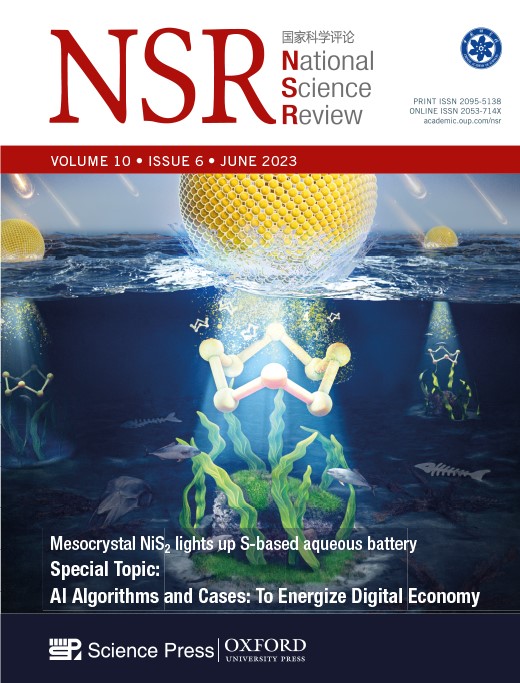气候变暖导致全球微生物衍生碳储量下降及其未来预测
IF 16.3
1区 综合性期刊
Q1 MULTIDISCIPLINARY SCIENCES
引用次数: 0
摘要
土壤有机碳(SOC)是陆地上最大的有机碳库,对于减缓气候变化和维持土壤肥力不可或缺。作为稳定 SOC 的主要组成部分,微生物衍生碳(MDC)约占 SOC 总量的一半,并对气候反馈产生影响。然而,我们对微生物衍生碳储量的时空动态了解有限,这阻碍了对全球变暖对土壤-大气碳循环中持久性 SOC 固碳的长期影响的评估。在此,我们汇编了一个广泛的全球数据集,并采用集合机器学习技术预测了1981年至2018年全球93.4%的陆地总面积上MDC储量的时空动态。我们的研究结果表明,气温每升高 1℃,全球可预测地区的土壤 MDC 储量就会减少 6.7 千兆克,相当于 MDC 总储量的 1.4% 或大气碳库的 0.9%。热带地区的 MDC 储量下降幅度最大。我们根据共同的社会经济路径进一步预测了下个世纪的未来 MDC 储量,结果显示全球 MDC 储量将下降,到 2100 年可能会减少 6-37 Pg,这取决于未来的路径。我们建议将 MDC 种群对气候变暖的反应纳入社会经济模型,以增强选择可持续发展路径的信心。本文章由计算机程序翻译,如有差异,请以英文原文为准。
Global decline in microbial-derived carbon stocks with climate warming and its future projections
Soil organic carbon (SOC) represents the largest terrestrial pool of organic carbon and is indispensable for mitigating climate change and sustaining soil fertility. As a major component of stable SOC, microbial-derived carbon (MDC) accounts for approximately half of the total SOC and has repercussions on climate feedback. However, our understanding of the spatial and temporal dynamics of MDC stocks is limited, hindering assessments of the long-term impacts of global warming on persistent SOC sequestration in the soil‒atmosphere C cycle. Here, we compiled an extensive global dataset and employed ensemble machine learning techniques to forecast the spatial-temporal dynamics of MDC stocks across 93.4% of the total global land area from 1981 to 2018. Our findings revealed that for every 1°C increase in temperature, there was a global decrease of 6.7 Pg in the soil MDC stock within the predictable areas, equivalent to 1.4% of the total MDC stock or 0.9% of the atmospheric C pool. The tropical regions experienced the most substantial declines in MDC stocks. We further projected future MDC stocks for the next century based on shared socioeconomic pathways, showing a global decline in MDC stocks with a potential 6–37 Pg reduction by 2100 depending on future pathways. We recommend integrating the response of MDC stocks to warming into socioeconomic models to enhance confidence in selecting sustainable pathways.
求助全文
通过发布文献求助,成功后即可免费获取论文全文。
去求助
来源期刊

National Science Review
MULTIDISCIPLINARY SCIENCES-
CiteScore
24.10
自引率
1.90%
发文量
249
审稿时长
13 weeks
期刊介绍:
National Science Review (NSR; ISSN abbreviation: Natl. Sci. Rev.) is an English-language peer-reviewed multidisciplinary open-access scientific journal published by Oxford University Press under the auspices of the Chinese Academy of Sciences.According to Journal Citation Reports, its 2021 impact factor was 23.178.
National Science Review publishes both review articles and perspectives as well as original research in the form of brief communications and research articles.
 求助内容:
求助内容: 应助结果提醒方式:
应助结果提醒方式:


